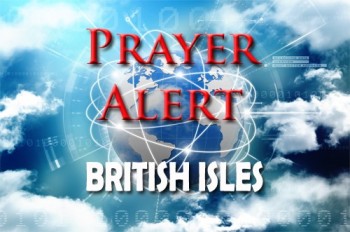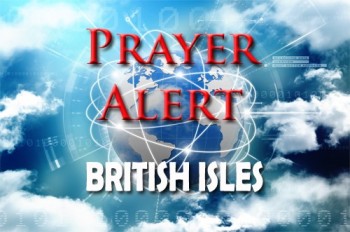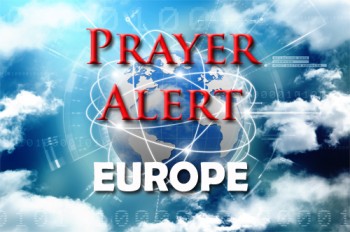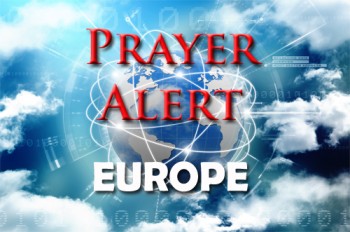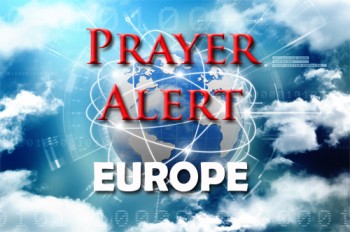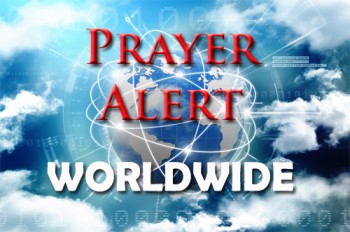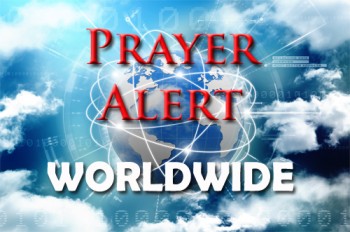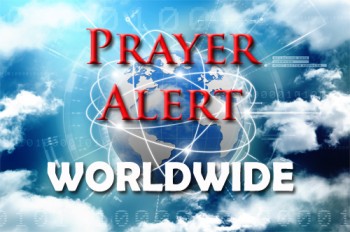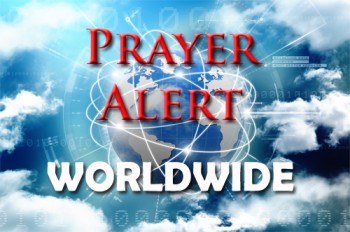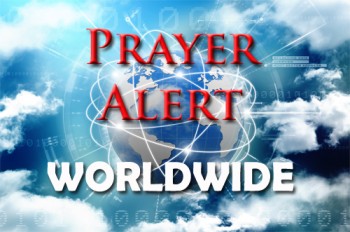
David Fletcher
David Fletcher is Prayer Alert’s Editor.
He is part of a voluntary team who research, proof-read and publish Prayer Alert each week.
If you would like to make a donation towards our running costs, please click here.
The Trussell Trust has said that Philip Hammond has missed a chance to do the right thing by giving people on the lowest income financial support and certainty before Brexit. Our benefits system should ensure proper support is in place when help is most needed. But more people are struggling to make ends meet and face hunger. The trust said a record demand in foodbank use has resulted from benefits not covering the cost of essentials. ‘By failing to end the benefits freeze and the five-week wait for Universal Credit, thousands more people will become trapped in poverty and may be forced to a foodbank as a result.’ Financial experts said that Britain needs urgent spending reviews to address issues around benefits squeezes, education funding, and social care. The Chancellor promised to free up more money to help end austerity if there’s a smooth Brexit, and that a disorderly Brexit would deal a ‘significant’ blow to economic activity in the short term. See
The Ministry of Defence is looking for a contractor for its new psychological research, which will allegedly boost troops’ performance and well-being. The ministry’s agency is seeking contributions from specialists in the fields of psychiatry, neuroscience and social sciences to help shape future strategies and policies. The University of Cambridge was shortlisted to take part in an almost £70 million research programme. Initially the university’s participation was approved by the board which scrutinises funding for ethical and reputational risks. Now over forty academics have expressed ‘deep concern’ over the university’s involvement in secretive military programmes without consulting staff and students.
Young people in Northern Ireland have grown up with a unique ability to identity as British, Irish, or both, thanks to the peace agreement that ended decades of conflict. But after Brexit, some people think the border between Northern Ireland and the Republic of Ireland could again become a scene of violence, and there is uncertainty about what rights Irish and British passport holders will have. Pray for the questions around people’s identities and citizenships to be resolved. Pray for peace to cover all areas threatened with fear and violence. To watch a short documentary about the north/south divide issues discussed by young people, click the ‘More’ button.
Lack of transparency and accountability has allowed corruption to flourish in Moldova’s politics. February’s parliamentary elections saw many long-standing politicians swept out of office, but results were inconclusive. None of the major parties secured a majority. Three parties exert a powerful political influence over key state institutions, including the judicial system. If they are unable to negotiate a viable coalition agreement, or if the final results are not validated, new elections could be called. In the run-up to elections, some candidates accused the authorities of poisoning them. Toxicology reports showed elevated mercury amounts in their blood. Journalists could not access information about political developments, and politicised media ownership reduced consumers’ exposure to diverse viewpoints. The route to a stable government remains unclear.
The Crimean Tatar people have decided to support Petro Poroshenko in Ukraine's presidential election. They said, ‘The most significant criterion in assessing candidates for the presidency is their ability to mobilise Ukrainian society to rebuff Russian aggression against Ukraine and restore its sovereignty and territorial integrity within its internationally recognised borders, which include the Crimea and the city of Sevastopol.’ The Tatars have also called on Ukrainians in occupied Crimea to participate in mainland Ukraine polling stations, and urged diaspora to vote at foreign polling stations. Russia outlawed the Tatar parliament (Mejlis) for ‘propaganda, ethnic nationalism, and extreme hatred towards Russia’.
President Bashir released all females detained for anti-government demonstrations on International Women's Day. The next day nine Sudanese women protesters were arrested and sentenced to twenty lashes plus a month in prison. In February Bashir declared a state of emergency and other measures including emergency courts across the country. The women were arrested for participating in a ‘banned demonstration’ in the capital's eastern district of Burri, a site of regular protests, and tried in one of the ‘emergency courts’. They are now in a women's prison in Omdurman. An appeal against the verdict was filed on 10 March. Protests against Bashir have happened almost daily across Sudan since 19 December. Pray for government leaders to rule with integrity and justice, and for peace and stability between tribal groups and military commanders who continue to vie for power.
An ‘extremist, right-wing terrorist’ has been arrested and named as the main suspect in connection with shootings at two mosques in Christchurch on 15 March; 49 were killed and at least 20 injured. The shooting was the deadliest in the country's history; prime minister Jacinda Ardern called it one of NZ's ‘darkest days’. One gunman live-streamed footage of his rampage to Facebook, filmed with a head-mounted camera. The footage showed him firing indiscriminately at men, women and children from close range inside the Al-Noor mosque. The suspect, who identified himself as Australian, is understood to have published a hate-filled manifesto outlining his intentions and espousing far-right and anti-immigrant ideology. Even though he did this one month ago, he had not been put on any watch list.
Rev Solomon Mfa and ten other Christian leaders filed a suit against the Nigerian government at the West African States Court of Justice, which has jurisdiction over human rights issues in the area. On 26 February the court ordered the government to investigate attacks that killed 300+ Christians and destroyed property; identify and prosecute the perpetrators; and redress the victims. ‘The government is in violation of its obligation to protect the human rights of these communities,’ the three judges stated in their unanimous verdict. The court also ordered the government to take urgent measures to protect Christians in the area by deploying soldiers and police to the affected communities. In the past three years, Muslim Fulani attacks have killed 1,000 people and destroyed property in 15 counties.
An assembly of the UN Environment Programme (UNEP) opened in Kenya's capital with a minute’s silence as delegates stood under the dark cloud cast by a plane crash that killed 157 people, including UN staff working for several different agencies. Through the week, as the identities of more victims were reported, heartache rippled through the conference halls. Students at Kenyatta University mourned the deaths of a lecturer and the director of teacher professional development. Hundreds of lives will not be the same as they mourn. Meanwhile Boeing faces further questions over the safety of its 737 Max 8 jets, now grounded after the second fatal crash in months. See
How communities treat our elderly is a measure of worth and moral integrity. 300 people attended the first community consultation by the Royal Commission into Aged Care Quality and Safety. Adult children and spouses of those in care want compassionate staff, not harsh, poorly trained, temperamentally unsuited people working in the sector. Commissioner Lynell Briggs spoke of creating a culture of dignity and respect after hearing harrowing tales, including that of a woman's mother in care being regularly left for hours to lie in her own mess. When she died, the facility operator told the daughter that her mother had been ‘taking up too much of the staff's time’. Upon complaint, the regulator turned on the daughter. The consultation heard much first-hand evidence of elder abuse. Victoria’s assisted dying legislation comes into effect on 19 June. There are fears that no euthanasia or assisted dying scheme can effectively screen for elder abuse and coercion.

